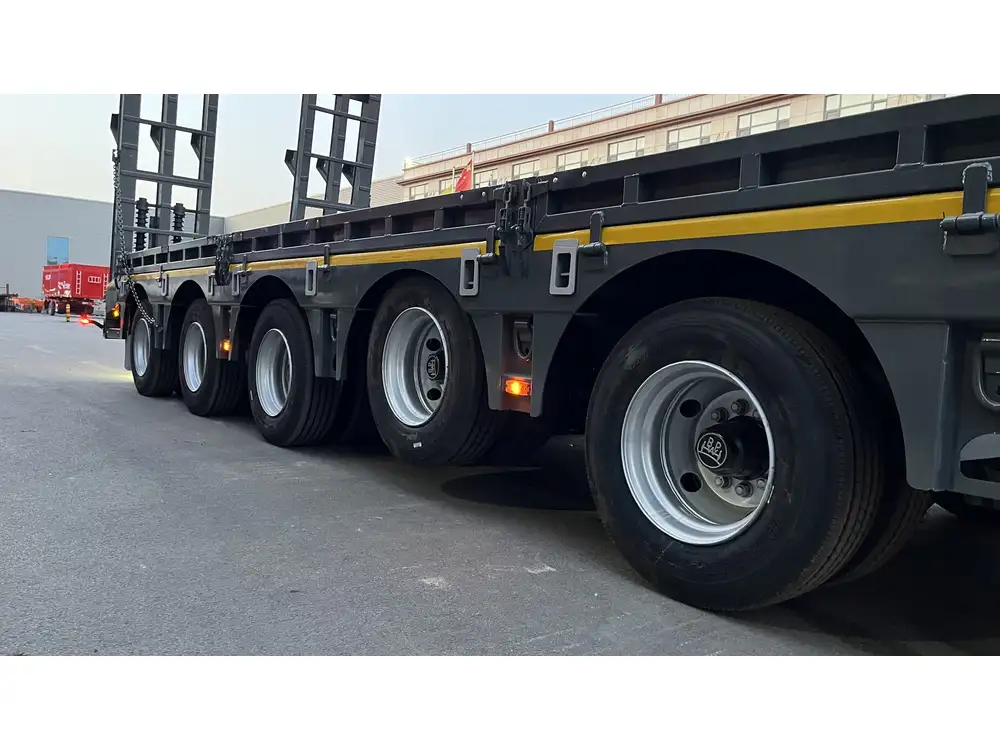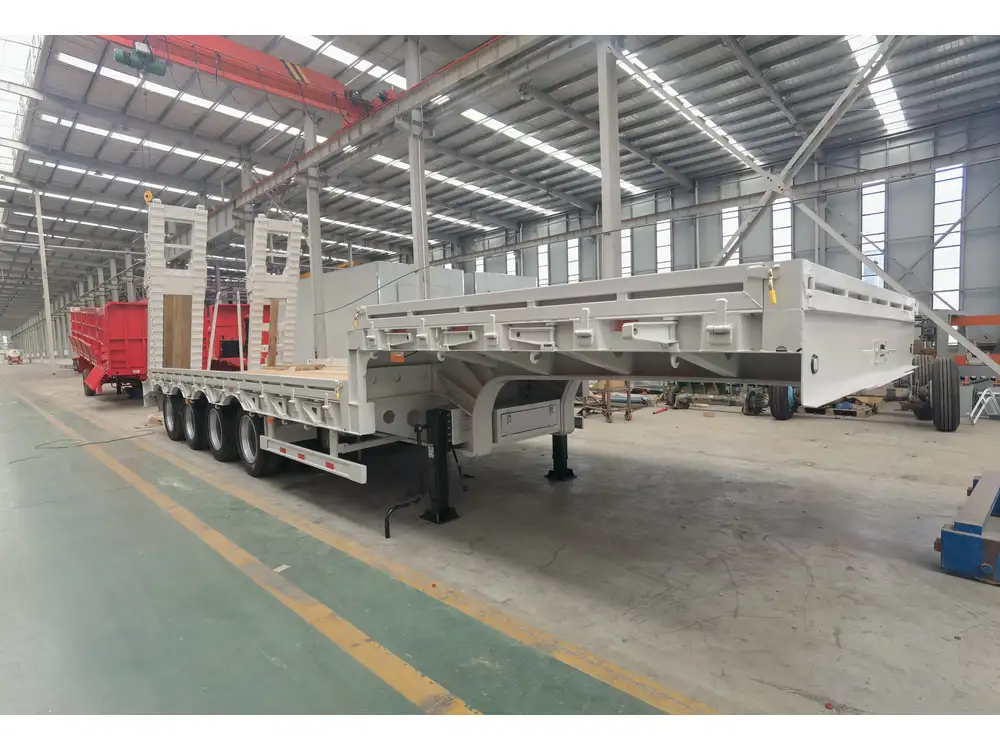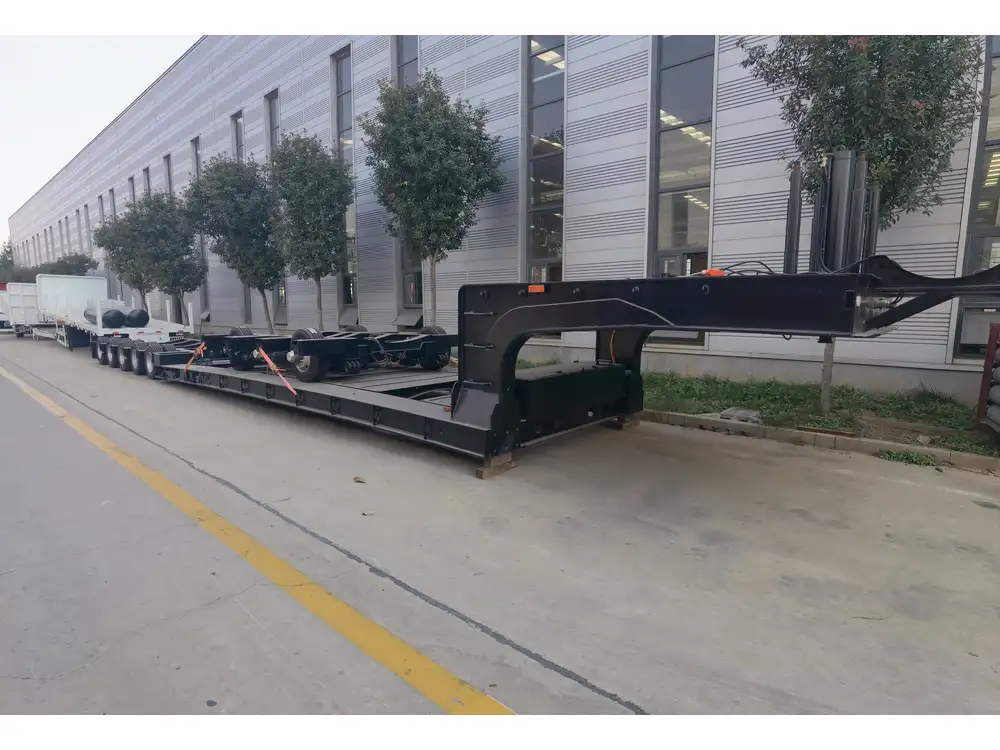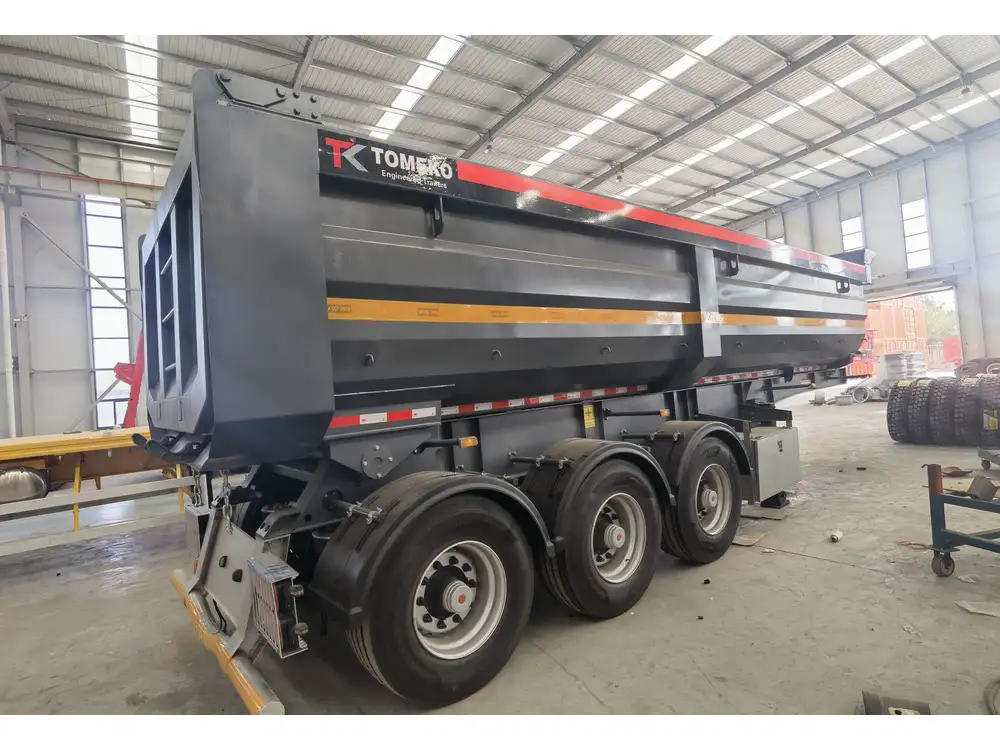Container skeletal trailers play a pivotal role in the logistics and transportation industries. By efficiently accommodating ISO containers, these specialized trailers have transformed the transport landscape. In this comprehensive guide, we explore the multifaceted benefits, design features, operational strategies, and purchasing considerations pertaining to container skeletal trailers.
What is a Container Skeletal Trailer?
A container skeletal trailer is a type of semi-trailer designed specifically to transport ISO standard containers. The skeletal frame allows for the placement of containers in a way that maintains stability and security during transit. Typically made from high-tensile steel, these trailers are lightweight, enhancing payload capacity while ensuring durability.
Key Components of a Container Skeletal Trailer
Frame Design:
- Steel Construction: Offers strength without excessive weight.
- Low Profile: Enhances aerodynamics and fuel efficiency.
Container Locks:
- Secure Fastening Mechanisms: Ensure containers are immobilized during transport.
- Varied Lock Positions: Allow for compatibility with different container sizes.
Axle Configuration:
- Single, Tandem, or Tri-Axle: Depending on weight distribution and local regulations.
- Lift Axles: Can be raised or lowered to optimize weight distribution.
Suspension Systems:
- Air Ride Suspension: Improves ride quality and preserves cargo integrity.
- Spring Suspension: Offers durability and lower cost.
Braking Mechanisms:
- Anti-lock Systems (ABS): Enhances safety by preventing wheel lock-up during braking.
- Electronic Braking Systems (EBS): Provides superior control and responsiveness.
Lighting Systems:
- LED Lights: Promote visibility and improve safety during night operations.

Advantages of Container Skeletal Trailers
Understanding the advantages of container skeletal trailers can assist logistics providers, shippers, and manufacturers in maximizing efficiency and reducing operational costs.
1. Enhanced Payload Capacity
Container skeletal trailers are engineered to be lightweight yet robust, allowing operators to maximize the payload. The reduction in trailer weight enables the transportation of heavier cargo without exceeding legal weight limits.
2. Versatility in Operations
These trailers support various container types, including 20-foot and 40-foot containers. The ability to switch between different container sizes without needing a different trailer reduces capital costs and enhances fleet flexibility.

3. Cost-Effective Transportation
Operational cost savings stem from higher fuel efficiency, thanks to the aerodynamic design. Additionally, container skeletal trailers often feature lower maintenance requirements compared to traditional flatbed trailers since their design minimizes wear and tear.
4. Improved Safety Features
The incorporation of advanced braking systems and robust frame designs increases overall safety during transport. The secure fastening mechanisms protect cargo integrity, mitigating risks associated with shifting loads.
Selecting the Right Container Skeletal Trailer for Your Needs
Choosing the appropriate container skeletal trailer involves assessing various factors, including load capacity, intended use, and budget considerations. Below, we provide a strategic approach to making an informed decision:
| Factor | Considerations | Recommendation |
|---|---|---|
| Container Size | Determine the primary container sizes you plan to transport. | Opt for models that accommodate multiple sizes. |
| Weight Capacity | Assess the maximum weight you need to transport, including cargo and container weight. | Choose trailers with a robust load rating. |
| Suspension System | Consider the type of cargo transported. Fragile cargo may require air suspension. | Invest in air ride suspension for delicate loads. |
| Brake System | Evaluate the importance of braking effectiveness based on your driving conditions. | Select trailers equipped with EBS for superior handling. |
| Budget | Establish a clear financial limit, including purchase, maintenance, and operational costs. | Compare options and consider reliability and service support over initial price. |

Operational Best Practices
To ensure the effective use of container skeletal trailers, operators should adopt a systematic approach:
Loading and Unloading Procedures
- Pre-Transport Inspection: Conduct thorough checks on the trailer, ensuring locks, lights, and brakes are functional.
- Proper Loading Techniques: Ensure container weight is evenly distributed to maintain stability.
- Use of Loading Equipment: Employ forklifts or cranes suitable for container loading to prevent damage.
Maintenance and Upkeep
Regular maintenance extends the lifespan of container skeletal trailers and prevents costly repairs:
- Routine Inspections: Conduct inspections at regular intervals for wear on tires, brakes, and suspension systems.
- Lubrication: Regularly lubricate moving parts, such as axles and brake components, to ensure proper functioning.
- Brake Checks: Monitor brake performance and replace brake pads when necessary to ensure safety.

Driver Training and Safety Protocols
Training for drivers operating container skeletal trailers should include:
- Safe Driving Practices: Emphasizing caution when navigating tight spaces and steep grades.
- Load Security Checks: Regularly checking that loads are secure at stops along the route.
- Emergency Procedures: Training on how to react in emergencies, including brake failures or shifting loads.
Innovations in Skeletal Trailer Design
The container transport industry is continuously evolving, and innovations are reshaping the design and functionality of skeletal trailers.
Lightweight Materials
The industry’s increasing focus on maximizing payload while minimizing fuel consumption has led to advancements in lightweight materials, such as aluminum and composite structures. These materials maintain structural integrity while being significantly lighter than traditional steel.

Enhanced Connectivity
Modern trailers are being equipped with telematics systems that provide real-time data regarding trailer location, load weight, and braking performance. This connectivity allows for better fleet management and proactive maintenance strategies.
Eco-Friendly Initiatives
With sustainability becoming a critical concern, manufacturers are increasingly incorporating eco-friendly technologies into trailer designs, such as:
- Fuel-efficient features: Incorporating aerodynamic elements to minimize drag.
- Electric braking systems: Reducing wear and contributing to lower emissions.
The Future of Container Skeletal Trailers
The future of container skeletal trailers appears bright, with advancements aligned with industry trends. Increasing global trade demand coupled with technological innovations promises enhanced functionality and efficiency. Strategic shifts towards sustainability are reshaping the manufacturing and operational practices within the sector.

Emphasis on Sustainability
The global movement toward zero emissions is urging manufacturers to focus on environmentally friendly production methods. This includes reducing waste in manufacturing processes and selecting recyclable materials for trailer production.
Integration of Autonomous Technology
Emerging technologies such as autonomous driving are being tested within the transport sector. Companies exploring these innovations are likely to gain a competitive advantage by optimizing logistics and reducing operational costs.
Conclusion
Container skeletal trailers are essential components of the modern logistics ecosystem, offering unparalleled benefits in payload capacity, versatility, and cost-effectiveness. Understanding their design intricacies, maintenance needs, and operational best practices can significantly enhance your logistics capabilities.
For businesses looking to invest in container skeletal trailers, the strategic selection based on specific operational needs, alongside adherence to maintenance protocols, will ensure optimal performance and longevity. As the trends toward sustainability and technological integration accelerate, staying informed on advancements in trailer design will empower your fleet and position your business favorably in an increasingly competitive landscape.
By equipping yourself with comprehensive knowledge on container skeletal trailers, you will be better prepared to navigate the complexities of the transport industry and benefit from the efficiencies offered by these vital assets.



